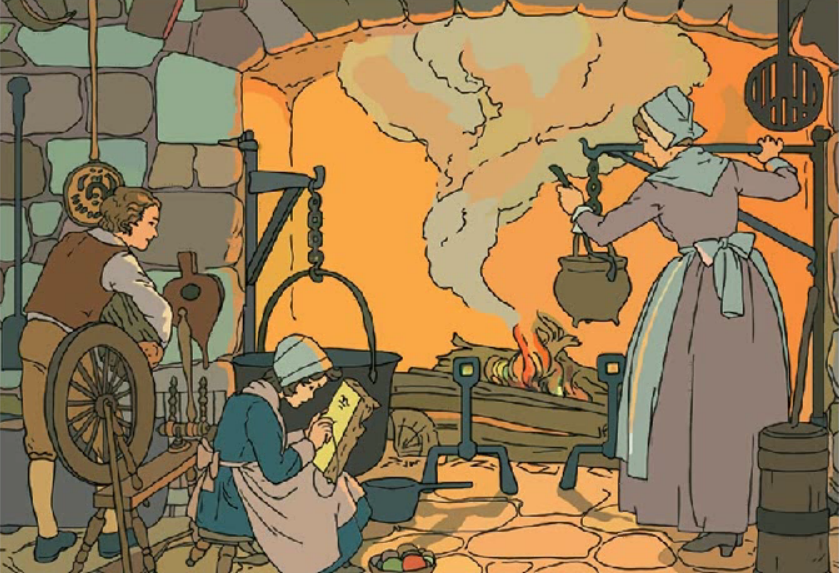At dinner, Mother said to Father, "I have been telling Peter and Mary about the things boys and girls had to do when Polly made the sampler."
晚飯的時候,媽媽跟爸爸說,我跟彼得和瑪麗講了波利制作繡樣,那個年代男孩和女孩要做的事情。
"Did you tell them that children of long ago did not always sit down to eat?" asked Father.
你跟他們說了很久以前,孩子們往往不做下來吃飯了,爸爸問到。
"They didn't stand, did they?" asked Peter.
他們不會是站著吃的吧?彼得問道。
"Yes, children usually stood while eating,"answered Mother, "Sometimes they stood back of the older people and sometimes at a side-table."
是的,那時的孩子們經(jīng)常是站著吃飯的,媽媽回答說,有時他們站在長輩的后面,有時是站在茶幾旁。
"I wouldn't like that," said Mary.
我可不想那樣,瑪麗說。
"I wouldn't either," said Peter.
我也不想,彼得說。
"But even the people who sat down to eat were not very comfortable," laughed Father.
但即使坐下來吃飯也不是很舒服。父親笑著說。
"Sometimes their tables and chairs were nothing but long, narrow boards laid across other boards."
有時他們的桌子和椅子不過是又長又窄的板子相互壘在一起而已。
"Did the people in those days have tablecloths?" asked Mary.
那時候的人們用桌布嗎?瑪麗問道。

"Oh, yes," Mother answered, "They had fine linen cloths and napkins, made from flax grown on their farms.
用啊,媽媽回答說,他們有上好的亞麻桌布和餐巾,這些都是用他們農(nóng)場上生長的亞麻制作的。
Many of the people made all the cloth they needed for bedding, clothes, and table linen.
他們所有的床上用品、衣物和桌布都是自己做的。
But of course they only used their fine table linens when someone came to visit them."
當然他們只有在有人來拜訪的時候才會用最好的桌布。
"People worked very hard in those early days," said Father, "and the children had to help, too."
那時候的人們工作很勤奮,孩子們也需要去幫忙,父親說。
"I'd rather live now than when Polly did," said Peter.
我更想生活在現(xiàn)在而不是波利生活的那個年代,彼得說。
"So would I," said Mary.
我也是,瑪麗說。
"Then who will help me wash dishes?" asked Mother.
那誰來幫我洗盤子呢?媽媽問。
"We will," said Mary and Peter together.
我們都愿意,瑪麗和彼得一起說到。


